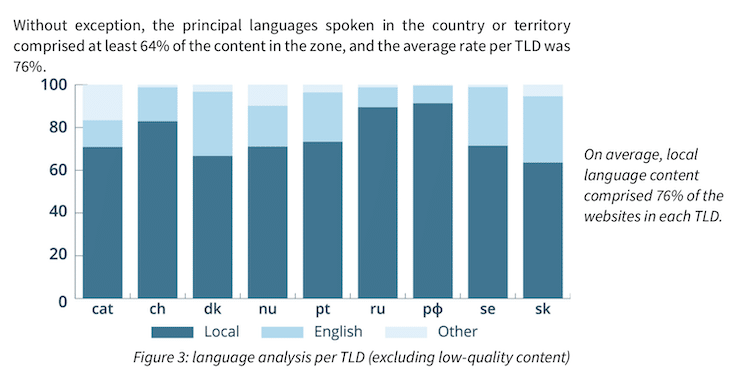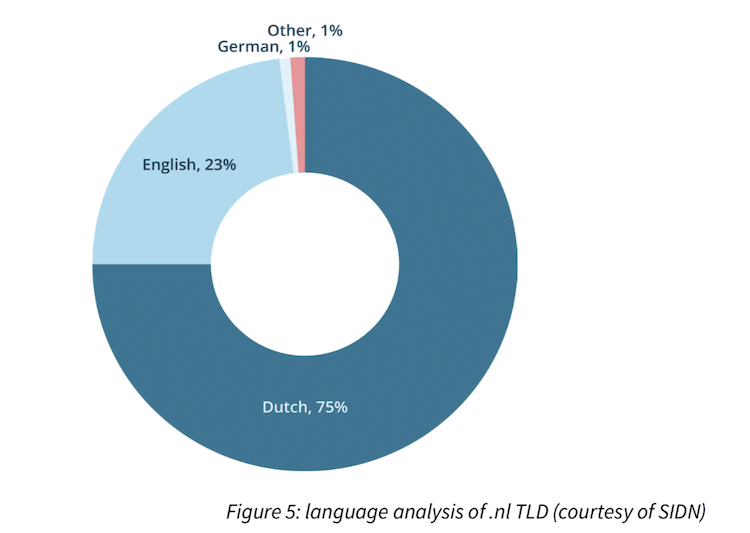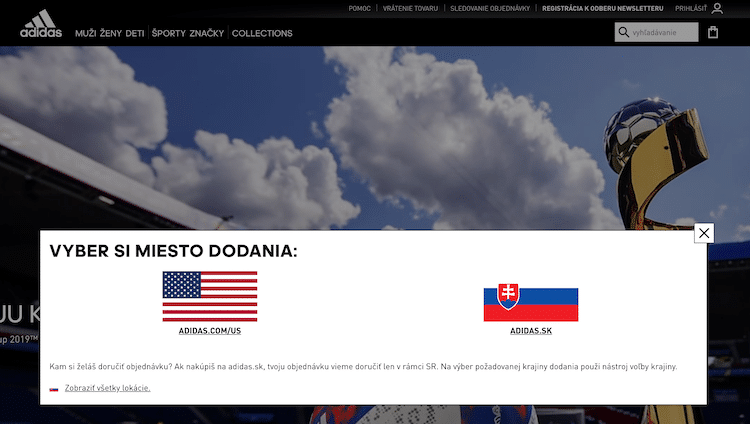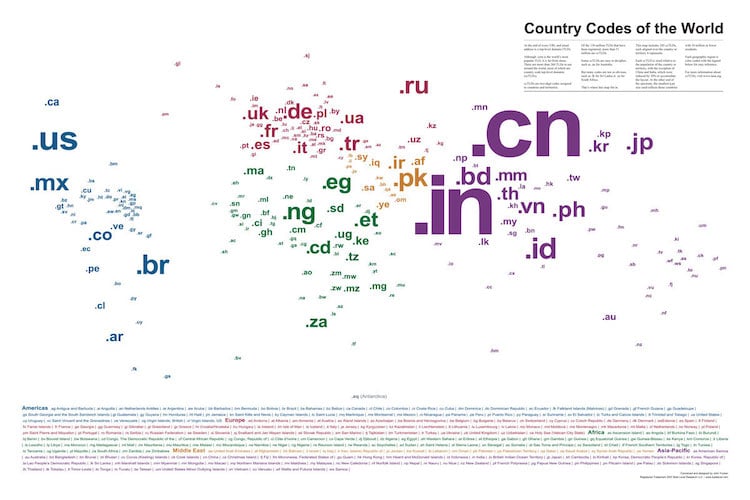Thanks to a heads-up from Ali at CircleID, I discovered a new report by Oxford Information Labs (sponsored by the Council of European National Top-Level Domain Registries.
The Council of European National Top-Level Domain Registries (CENTR) gave Oxford Information Labs access to the zone files of its members so they could evaluate the domains and the languages supported by more than 16 million geographic domains (country codes).
According to their research, the majority of content hosted on these country codes align with the dominant languages in their respective regions, as illustrated here:

Russia stands apart in not only its country code but its Cyrillic IDN (internationalized domain name) supporting Russian-language content.
And SIDN, the registry in charge of the .nl country code, shared its own research on the languages supported by domains that use the Netherlands country code. Once again, the local language is well represented.

Given the sheer volume of domains studied, these findings are important and reflect the value of country codes in making locally relevant content more discoverable to local users. Readers of Global by Design know that I’ve long evangelized for the use of country codes as well as IDNs.
According to my research for the 2019 Web Globalization Report Card, more than half of the websites studies do an above-average job of supporting country codes. Companies such as Toyota, IKEA and Adidas, do a very good of supporting country codes. To illustrate, here are a few live websites:

While my research focuses on large global brands, this CENTR report confirms that a majority of smaller organizations and individuals are also using country codes to host local-language content.
While I can’t say that country codes in themselves cause there to be more local-language content on the Internet, I will say that country codes incentivize the creation and hosting of local-language content by providing the correct “front door” to this content.
You can download the full report here.
PS: Here’s a map of the world’s 240+ country codes aligned over the regions they represent…

